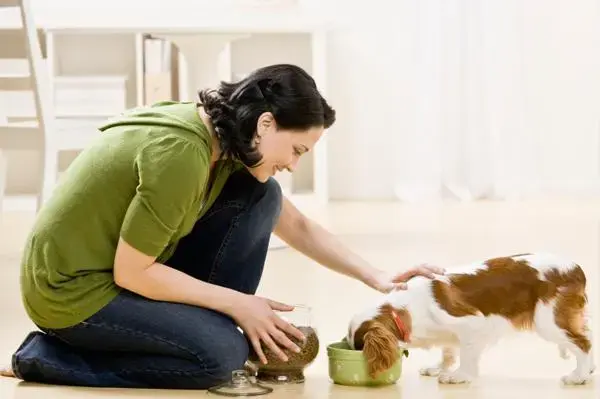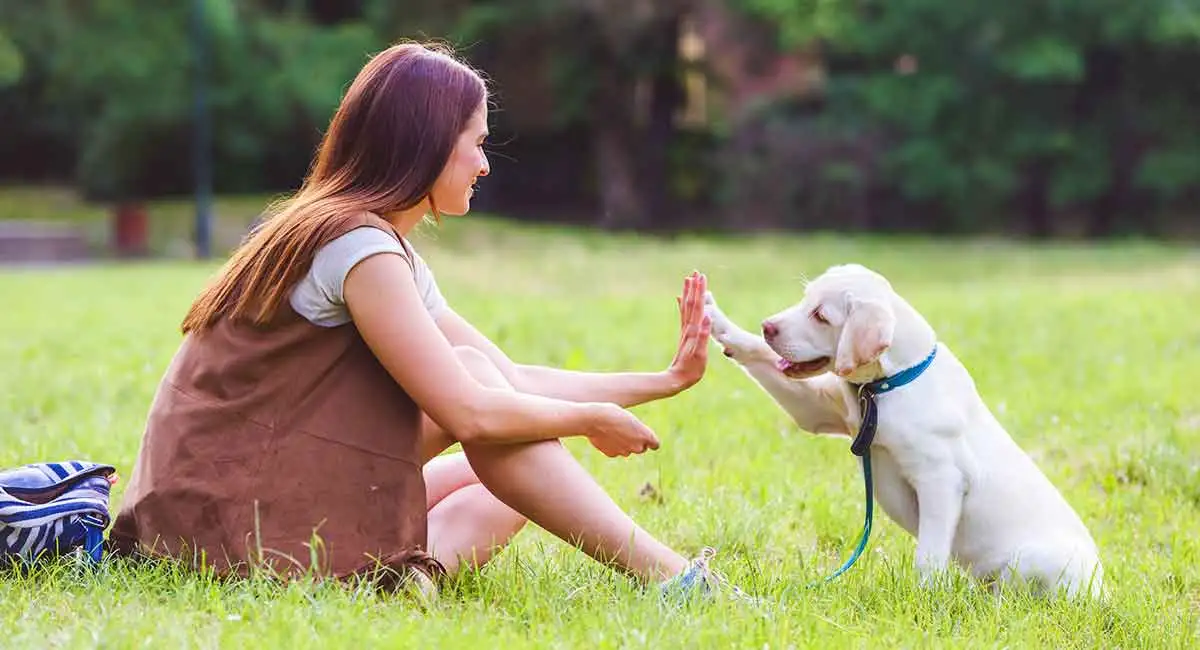Bringing a puppy home is an exciting and heartwarming experience, but it also comes with great responsibility. Just like babies, puppies need love, care, and guidance to grow into happy, well-behaved dogs. If you’re a new pet parent, don’t worry! This 10-step guide will help you navigate how to take care of a puppy with confidence and joy.
- 1. Prepare Your Home for Your New Puppy
- 2. Choose the Right Puppy Food
- 3. Schedule a Vet Visit
- 4. Start Training Immediately
- 5. Socialize Your Puppy
- 6. Keep Your Puppy Active
- 7. Maintain Good Grooming Habits
- 8. Ensure They Get Plenty of Sleep
- 9. Keep Their Mind Engaged
- 10. Show Them Love and Patience
- Final Thoughts
1. Prepare Your Home for Your New Puppy
Before your puppy arrives, take a few steps to create a safe and welcoming space for them:
- Remove Hazards: Puppies love to chew and explore, so tuck away electrical cords, keep small objects out of reach, and remove toxic plants.
- Secure Household Items: Store cleaning supplies, medications, and anything sharp in locked cabinets or high shelves.
- Create a Cozy Puppy Area: Set up a soft bed, food and water bowls, and a few safe chew toys in a quiet, comfortable spot.
- Use Safety Gates: Block off areas where your puppy shouldn’t go, such as staircases or rooms with delicate furniture.
A safe environment helps your puppy settle in comfortably and reduces the chances of accidents.
2. Choose the Right Puppy Food
Proper nutrition is key to your puppy’s growth and development. Here’s what to keep in mind:
- Pick High-Quality Puppy Food: Look for food specifically formulated for puppies, as they require more protein and essential nutrients than adult dogs.
- Follow a Feeding Schedule: Puppies need to eat more frequently—typically 3 to 4 small meals per day.
- Provide Fresh Water: Always keep a clean bowl of water available for your pup.
- Avoid Harmful Foods: Foods like chocolate, grapes, onions, and anything with caffeine are toxic to dogs.
- Introduce New Foods Gradually: If switching foods, do so over several days to prevent digestive issues.
A well-balanced diet ensures your puppy grows strong and stays energetic.
3. Schedule a Vet Visit
One of the first things you should do after bringing your puppy home is take them to the vet. The vet will:

- Give Initial Vaccinations: Puppies need shots to protect them from diseases like parvovirus, distemper, and rabies.
- Discuss Flea and Tick Prevention: Parasites can be harmful, so ask about preventive treatments.
- Monitor Growth and Health: Regular check-ups help ensure your puppy is growing properly and staying healthy.
- Talk About Spaying/Neutering: Your vet can advise on the best timing for this procedure.
Regular vet visits keep your puppy in top shape and help catch any health issues early.
4. Start Training Immediately
Training begins the moment your puppy arrives home. Here’s what to focus on:
- House Training: Take your puppy outside frequently, especially after meals and naps. Praise them when they potty in the right spot.
- Crate Training: A crate provides a secure space and helps with housebreaking.
- Teach Basic Commands: Start with simple commands like sit, stay, come, and leave it using positive reinforcement.
- Be Consistent and Patient: Puppies learn through repetition. Stay calm and avoid harsh punishment.
A well-trained puppy grows into a well-mannered adult dog.
5. Socialize Your Puppy
Early socialization helps your puppy develop confidence and good behavior. Introduce them to:
- New People: Allow your puppy to meet family members, friends, and children in a safe, controlled manner.
- Other Pets: Arrange playdates with well-behaved dogs to encourage positive interactions.
- Different Environments: Take them for car rides, short outings, and exposure to different sounds and surfaces.
- Handling and Grooming: Get your puppy used to being touched on their paws, ears, and mouth to make future grooming and vet visits easier.
A well-socialized puppy is less likely to develop fear-based aggression or anxiety later in life.
6. Keep Your Puppy Active
Puppies are full of energy and need plenty of exercise to stay healthy and happy:
- Go for Short Walks: Start with brief, gentle walks and increase the distance as they grow.
- Engage in Playtime: Games like fetch, tug-of-war, and hide-and-seek keep them entertained.
- Provide Mental Stimulation: Puzzle toys and training exercises challenge their minds.
- Avoid Overexertion: Young puppies, especially large breeds, should not exercise excessively as their joints are still developing.
Daily exercise prevents boredom and destructive behavior.
7. Maintain Good Grooming Habits
Regular grooming keeps your puppy comfortable and healthy. Here’s what to do:
- Brush Their Coat: Regular brushing prevents matting and reduces shedding.
- Bathe When Needed: Use a mild puppy shampoo and bathe them every few weeks or when they are dirty.
- Trim Nails Regularly: Long nails can be painful and may cause mobility issues.
- Clean Their Ears: Check and gently clean their ears to prevent infections.
- Brush Their Teeth: Use a dog-friendly toothbrush and toothpaste to maintain good dental health.
Starting grooming early helps your puppy get used to the process.
8. Ensure They Get Plenty of Sleep
Puppies sleep a lot—about 18–20 hours a day! Help them get the rest they need by:

- Provide a Comfortable Bed: Choose a soft, warm bed in a quiet area.
- Establishing a Routine: Put them to bed at the same time each night.
- Minimizing Disruptions: Keep noise levels low during nap times.
- Allowing Plenty of Naps: Puppies need sleep to support their rapid growth and learning.
A well-rested puppy is happier and more receptive to training.
9. Keep Their Mind Engaged
A bored puppy can become mischievous. Keep their mind active with:
- Training Games: Teaching new tricks keeps them mentally stimulated.
- Interactive Toys: Puzzle toys encourage problem-solving skills.
- Scent Games: Hide treats and let them sniff them out.
- Exploring New Places: Let them experience different environments to boost their confidence.
Mental stimulation helps prevent unwanted behaviors like excessive barking and chewing.
10. Show Them Love and Patience
Your puppy is learning and growing every day. Strengthen your bond by:
- Being Patient: Puppies will make mistakes—respond with kindness and consistency.
- Using Positive Reinforcement: Reward good behavior with treats, praise, or cuddles.
- Spending Quality Time: Play, talk, and cuddle with your puppy to build a trusting relationship.
- Creating a Loving Home: A safe, happy environment helps your puppy thrive.
Your love and patience will shape them into a well-adjusted, affectionate companion.
Final Thoughts
Raising a puppy requires dedication, but it’s also one of the most rewarding experiences. By following these 10 steps, you’ll provide your furry friend with the best start in life. Cherish every moment, celebrate their milestones, and enjoy the incredible journey of pet parenthood! By understanding how to take care of a puppy, you’ll ensure that your puppy grows into a well-rounded, healthy, and happy dog.
Last Updated on March 29, 2025 by furryadminblog

